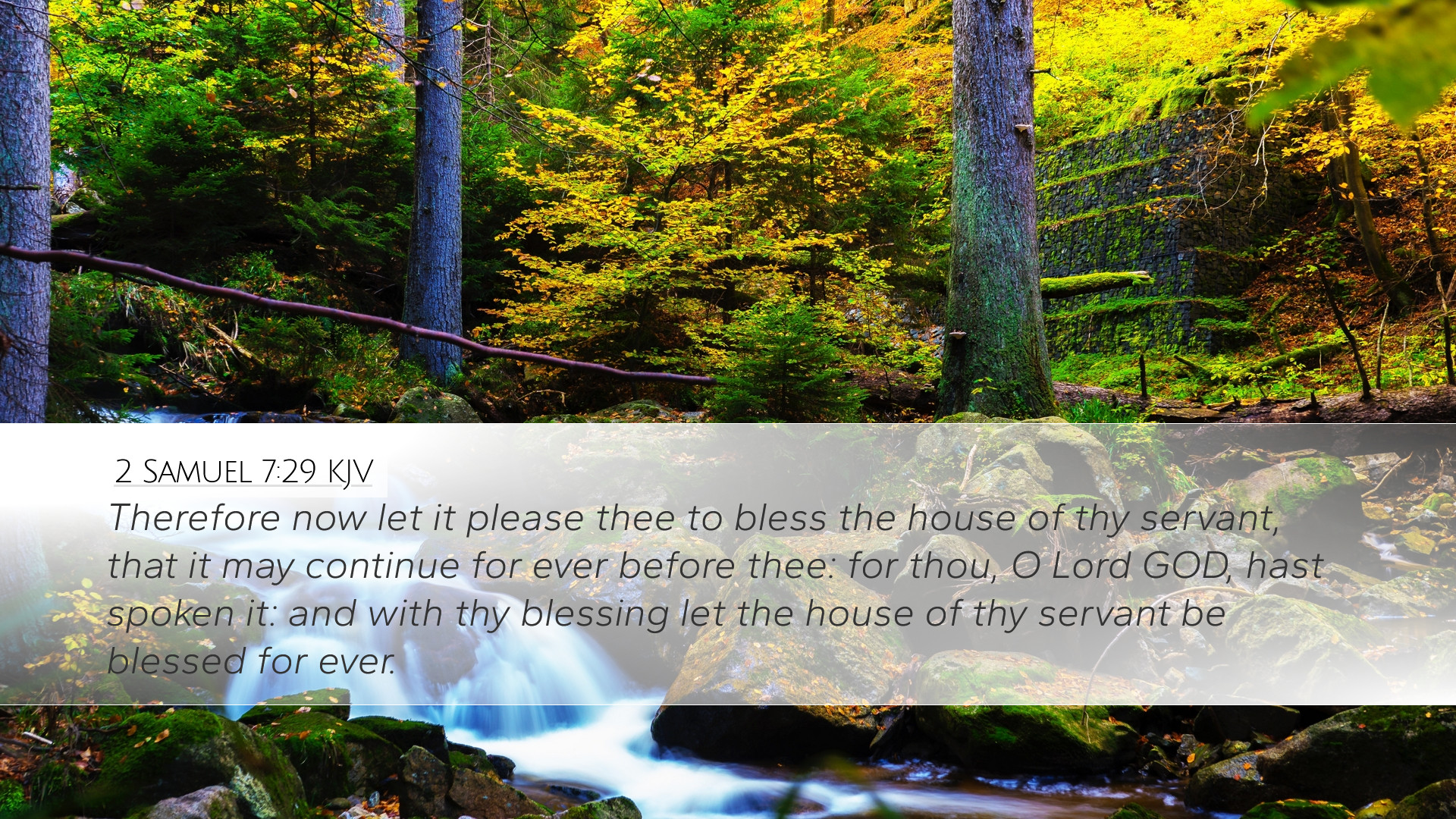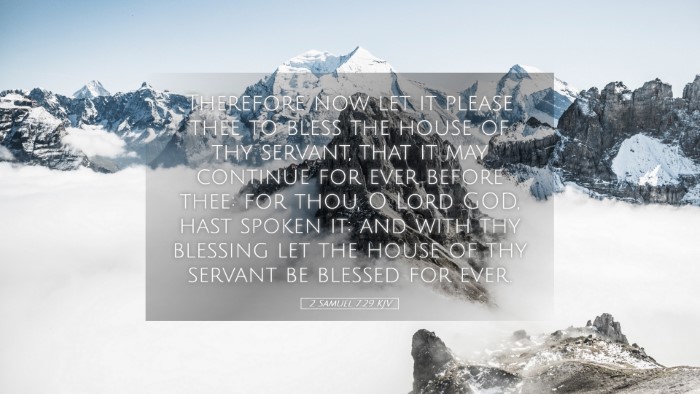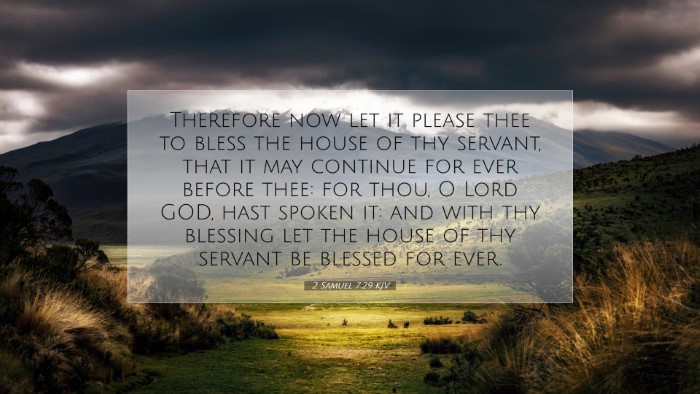Commentary on 2 Samuel 7:29
Verse Text: "Now therefore, let it please thee to bless the house of thy servant, that it may continue forever before thee: for thou, O Lord God, hast spoken it: and with thy blessing let the house of thy servant be blessed forever." (2 Samuel 7:29 KJV)
Introduction
This verse is a poignant conclusion to God's covenant with David, reflecting themes of divine promise, legacy, and the assurance of God's faithfulness. In this commentary, we will explore insights from respected public domain commentators including Matthew Henry, Albert Barnes, and Adam Clarke, drawing on their interpretations to deepen our understanding of this scripture.
The Context of 2 Samuel 7
In the preceding chapters of 2 Samuel, we witness the establishment of David as king over Israel and his intentions to build a house (the temple) for the Lord. However, God, through the prophet Nathan, communicates His desire to establish David's lineage instead. This chapter critiques human ambition in contrast to divine sovereignty and sets the tone for the expectations surrounding the Davidic line.
Analysis of the Verse
Divine Favor and Blessing
Albert Barnes posits that David's request for blessing indicates his awareness of the enormity of God's promise. The phrase "let it please thee" shows David's humility and recognition of God's sovereignty. This reflects the biblical principle that blessings are contingent upon divine will.
The House of David
Matthew Henry emphasizes the importance of the "house of thy servant," linking it directly to the structure of familial and spiritual legacy in Israel. This request not only expressed David's desire for personal blessing but also that of future generations. Henry notes that David sought a blessing that would be enduring, suggesting a vision that extended beyond his immediate reign.
God's Assurance
In the latter part of the verse, the phrase "for thou, O Lord God, hast spoken it" highlights the certainty of God's promises. Here, Adam Clarke comments on how David's plea is rooted in the divine assurance given through Nathan's prophecy. Clarke elucidates that the basis of David's plea lies in God's faithfulness; hence, the assurance redounds not only as a blessing but also as a declaration of God's unchanging nature.
Theological Implications
Covenant Theology
This verse encapsulates the essence of covenant theology where God's commitments to His people are central. As past scholars like Matthew Henry suggest, the unconditional nature of God's covenant with David is foundational for understanding the Messiah's lineage and the hope of restoration for Israel.
Legacy and Spiritual Heritage
The idea of a lasting legacy resonates profoundly within Christian teachings. The mention of "forever" speaks to the eternal nature of God's promises. This speaks volumes to pastors and theologians about the significance of leaving a spiritual legacy, as the blessings of God can extend through generations—a theme echoed by Albert Barnes in his discussions on familial piety and heritage in faith.
Intercessory Prayer
David's approach in this verse demonstrates a model of faith and intercession, relevant for modern believers. Clarke's insight sheds light on the necessity of submitting our requests to God and recognizing His sovereignty. David’s humility serves as a blueprint for prayer, illustrating that true requests for blessings must align with godly purposes.
Conclusion
2 Samuel 7:29 serves as a profound testament to God's faithfulness and the enduring nature of His promises. Through this verse, we witness the intersections of divine providence, human humility, and the implications of intercessory prayer. As we delve into this passage, pastors, students, and scholars are reminded of the richness of biblical heritage and the call to intercede for future generations, reinforcing the strength of our faith in a God who not only promises but fulfills.


